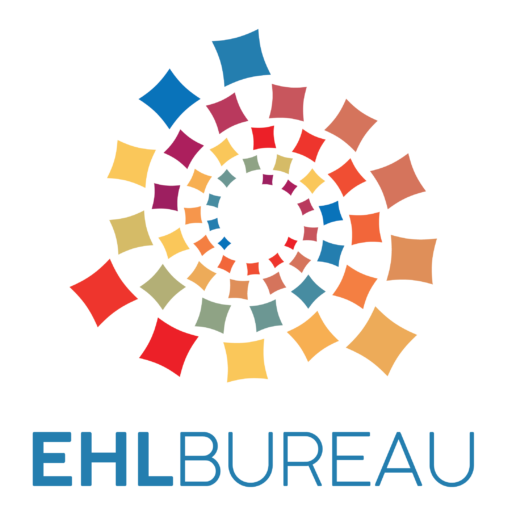This website uses cookies so that we can provide you with the best user experience possible. Cookie information is stored in your browser and performs functions such as recognising you when you return to our website and helping our team to understand which sections of the website you find most interesting and useful.
European District of Strasbourg
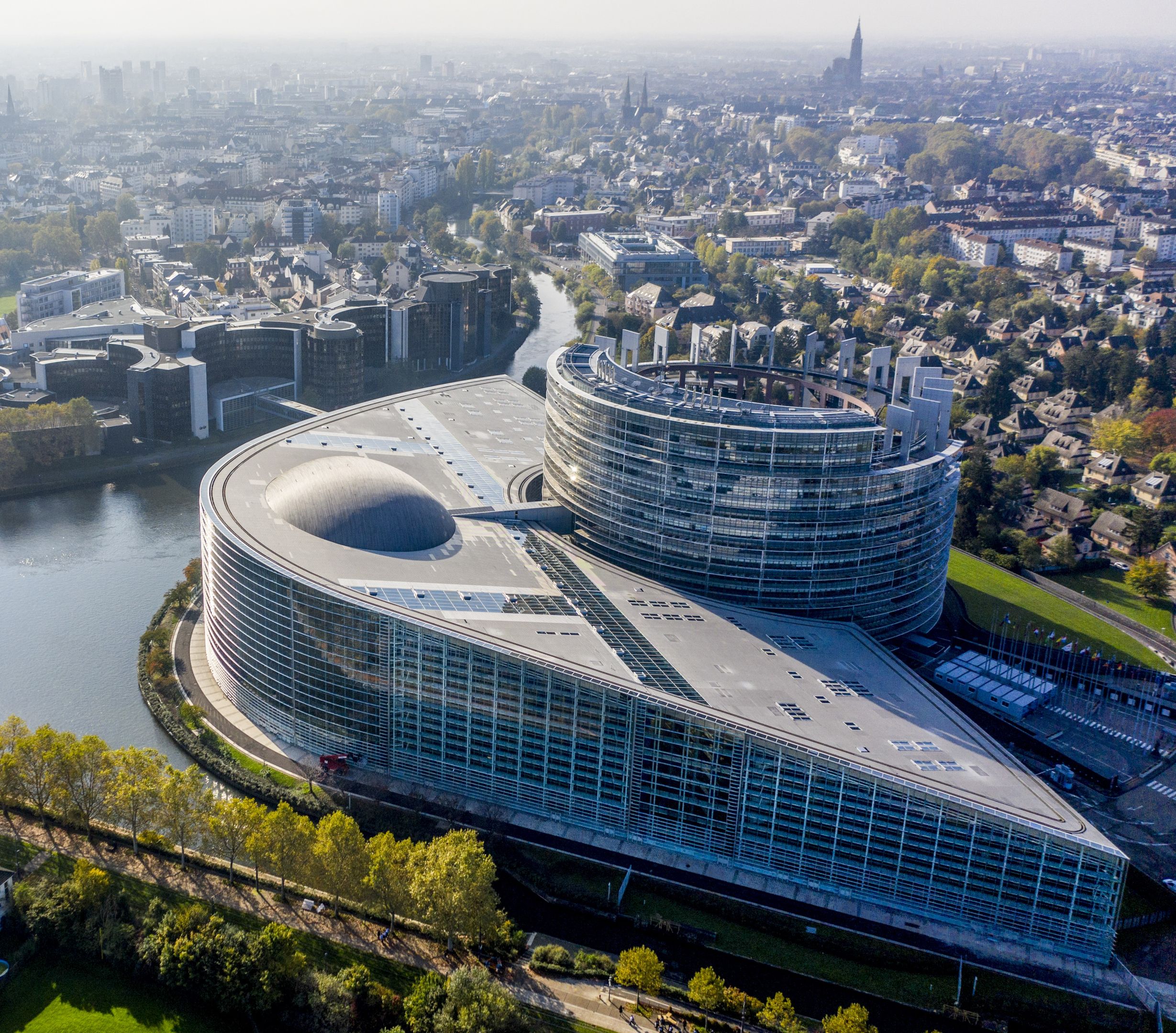
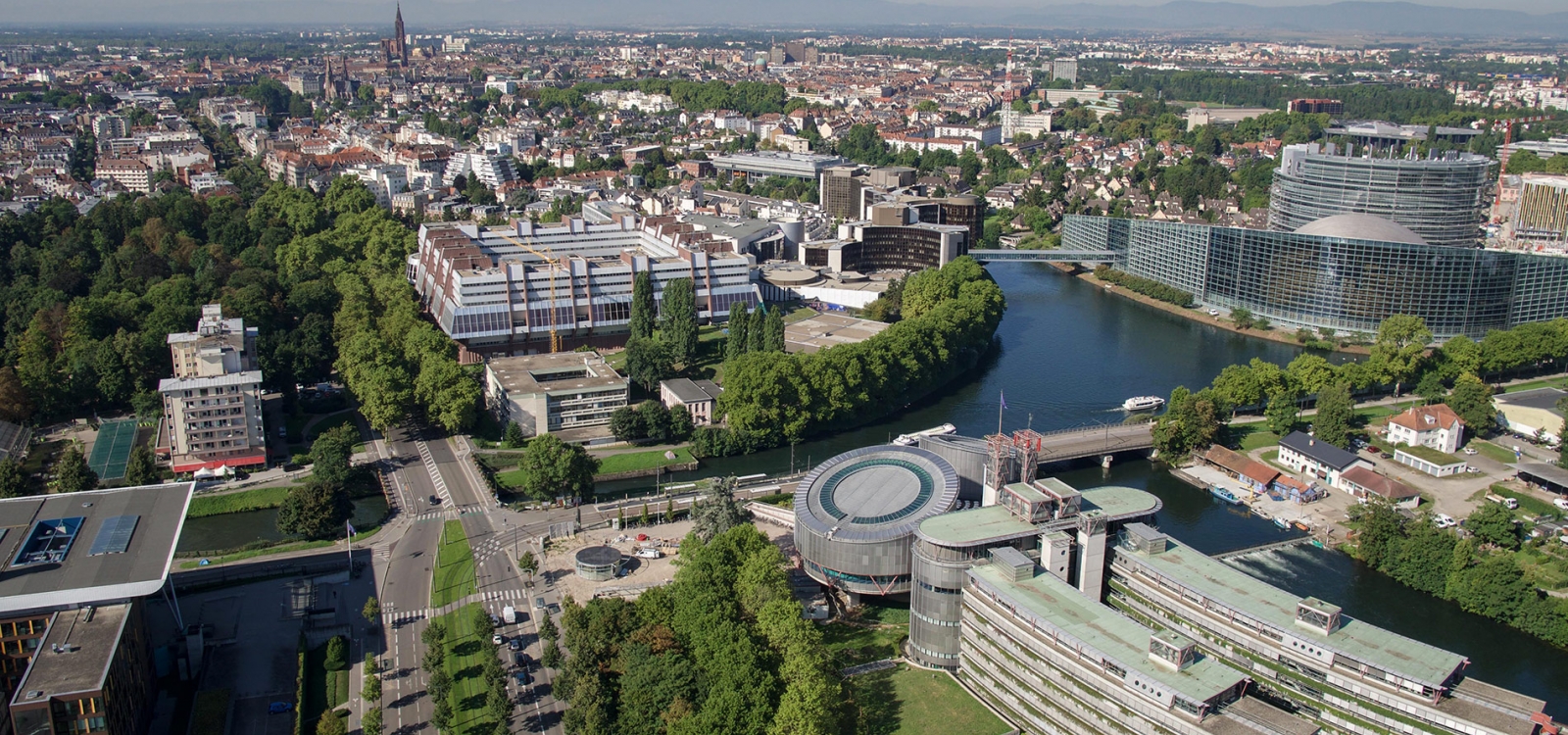
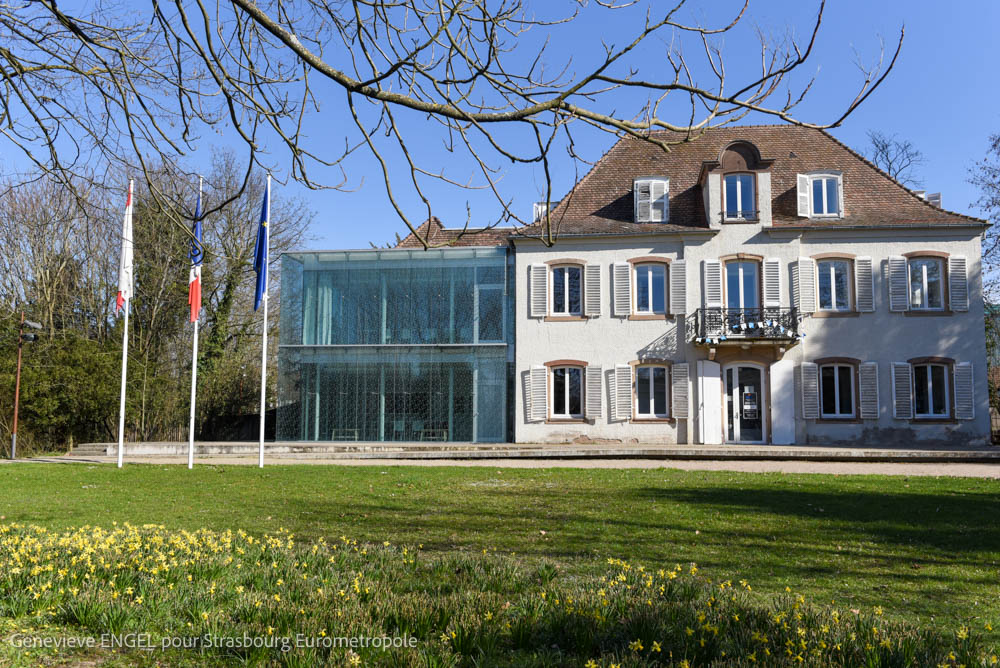
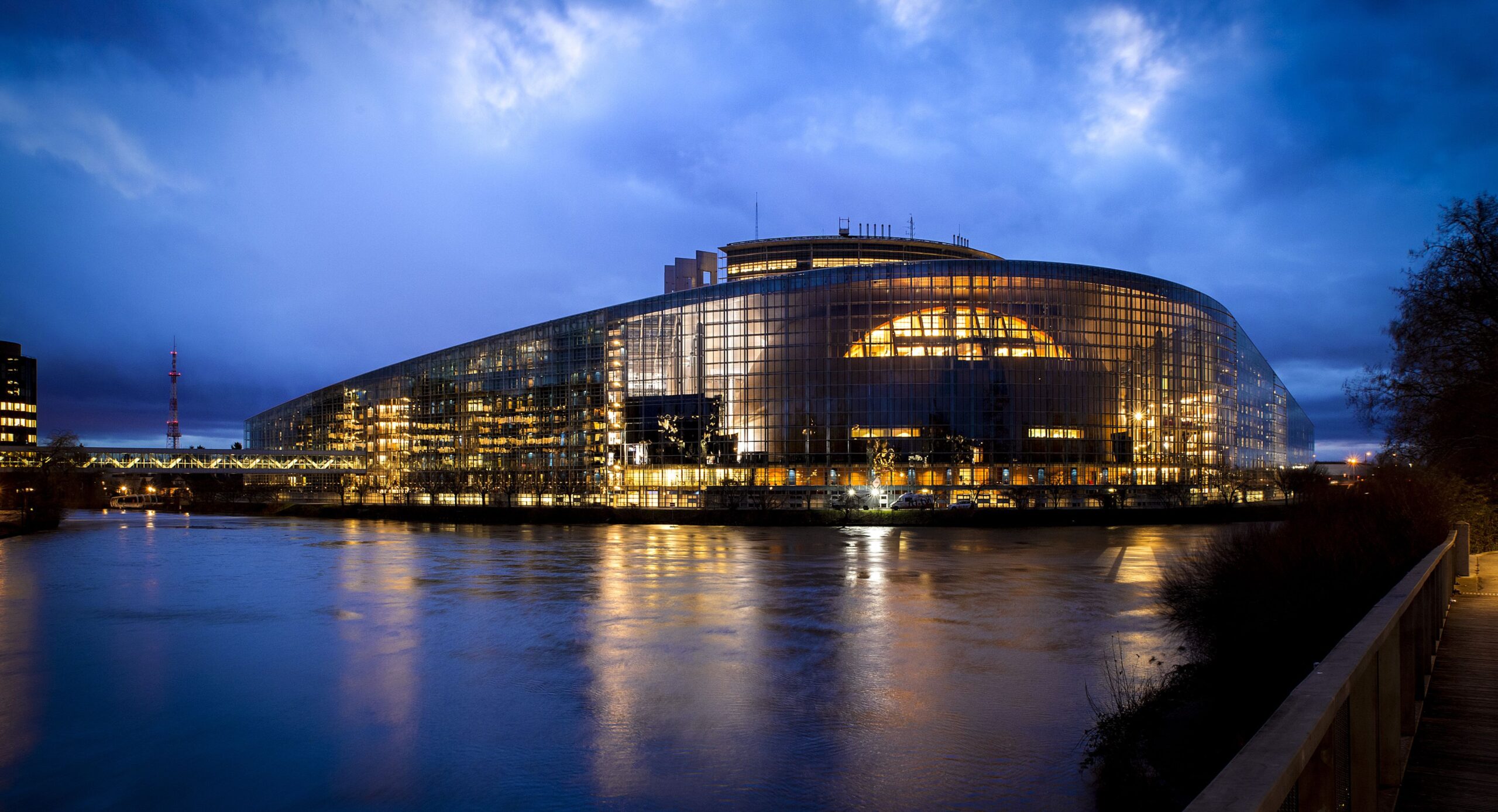
The EHL Site
After World War II, European countries organized the reconstruction of Europe, agreeing to create institutions dedicated to a peaceful, prosperous, and united world. Strasbourg, at the crossroads of the Rhine and key European routes, and between France and Germany, was chosen in 1949 to host the first post-war European institution: the Council of Europe. Ernest Bevin, the UK Foreign Secretary, highlighted Strasbourg as a symbol of reconciliation and peace.
In August 1949, the first meeting of the Committee of Ministers of the Council of Europe at Strasbourg City Hall was followed by the Parliamentary Assembly at the University Palace. Notable attendees included Winston Churchill, Paul Henri Spaak, and Robert Schuman, who were pivotal in establishing Europe in Strasbourg. Other influential figures included Pierre Pflimlin, future President of the European Parliament, and Louise Weiss, elected as an MEP in 1979, who believed Strasbourg epitomized the pure European spirit.
The construction of the Maison de l’Europe marked the birth of the European district, housing entities from the Council of Europe, the European Union, and other European-focused organizations. From 1977, the Palace of Europe hosted Council and European Parliament activities. Established in 1959, the European Court of Human Rights has been seated since 1995 in the Palace of Human Rights, designed by Lord Richard Rogers. The Council’s initiatives led to various institutions nearby: the European Youth Centre (1972), the European Directorate for the Quality of Medicines & HealthCare (2007), and the Agora (2008) housing several Directorate Generals and Eurimages.
The 1950s saw the formation of what became the European Union with the Maastricht Treaty in 1992. The ECSC Assembly’s first session was in 1952 at the Maison de l’Europe. To accommodate the European Parliament’s needs, Strasbourg built the Winston Churchill, Pierre Pflimlin, and Salvador de Madariaga buildings (1980-1991), with the Louise Weiss building inaugurated in 1999.
Other notable institutions include the René Cassin Foundation, Arte TV, the European School, and the Lieu d’Europe, promoting European education, culture, and values.
European dimension
The European district, inherently transnational, houses institutions that embody European construction and intergovernmental cooperation. The district and its surroundings host 75 diplomatic representations and consulates, making Strasbourg the second-largest diplomatic city in France and reinforcing its status as a European capital.
Representatives from the 46 member countries of the Council of Europe and deputies from the 27 EU countries regularly meet here, actively contributing to European construction. The district, connected to the rest of the city, is a vibrant place where thousands work daily, addressing issues affecting 675 million Europeans, developing educational activities, and strengthening human rights, democracy, and the rule of law across Europe and beyond.
Strasbourg is the “European and global capital” of human rights due to its dedicated institutions. The European Court of Human Rights, permanently seated here, can be approached by any European citizen whose fundamental rights are violated. Its public hearings demonstrate the transparency of the European legal system. Since its inception, more than a million judgments and decisions have been issued.
The Commissioner for Human Rights, an independent, non-judicial institution created by the Council of Europe in 1999, raises awareness of human rights violations in member states. The European Ombudsman, an EU institution, ensures proper administration within the EU and can investigate complaints from individuals, businesses, or associations against EU institutions.
The René Cassin Foundation – International Institute of Human Rights trains professionals to enhance their effectiveness in preventing and denouncing human rights violations. Strasbourg’s European district embodies democracy in action. The Congress of Local and Regional Authorities of the Council of Europe, composed of 612 elected representatives, meets biannually to strengthen local and regional democracy.
Monthly sessions of the European Parliament bring 705 parliamentarians to Strasbourg to legislate on issues impacting citizens’ daily lives, such as labor freedom, equality, and economic and ecological matters.
Awards highlight actions defending human rights, democracy, and the rule of law. The European Parliament’s Sakharov Prize honors those defending freedom of thought. The Council of Europe’s Václav Havel Prize honors civil society actors for human rights work.
The organization
Strasbourg actively promotes the European Heritage Label and its values in multiple ways. Established in 2014, the Lieu d’Europe is dedicated to showcasing Strasbourg’s European identity and fostering European civic education. Open from Tuesday to Sunday, 10 am to 6 pm, it serves as the main engagement tool for both newcomers and enthusiasts, offering an inclusive educational and cultural project with regular off-site activities. Its permanent exhibition details the history of the European project, key figures, spaces, and symbols, with a section on the label and Strasbourg’s role in Europe. The exhibit is interactive, fully trilingual (French, German, English), and accessible to the hearing impaired, with a narrative and activity booklet for young visitors (ages 7+).
The Lieu d’Europe also conducts thematic workshops, and guided tours, and provides informative signage about institutional roles and functions. It hosts a variety of programs, including conferences, film screenings, debates, and cultural events (concerts, theater, readings, performances), to present Europe in its institutional, social, economic, historical, artistic, cultural, and linguistic dimensions. Partnering with cultural, educational, and associative organizations, it creates events for the European agenda (Europe Day, European Heritage Days) and participates in festivals promoting European values. Monthly, it co-organizes the Wednesday Conferences of the Council of Europe.
Additionally, the Lieu d’Europe houses the Information Center on European Institutions (CIIE), part of the EU’s Europe Direct network, which offers activities for students, a neighborhood treasure hunt, and a resource center. European district institutions develop their own educational and communication initiatives, shared on the Lieu d’Europe website.
The European Parliament’s Parlamentarium provides an exhibition on the EU and thematic temporary exhibits. Public attendance at monthly sessions and the biennial EYE event, attracting thousands of young Europeans, is encouraged. Lux Prize-winning films are screened in city-center cinemas.
The European Youth Centre of the Council of Europe offers year-round training for youth leaders. In partnership with Strasbourg, the Council of Europe organizes events like the annual World Forum for Democracy. Since 2009, Strasbourg has featured cultural programming for countries holding the rotating presidency of the Committee of Ministers of the Council of Europe.
These activities collectively enhance the promotion and dissemination of European values. The tourism office promotes these efforts, encouraging visitors to explore them.
